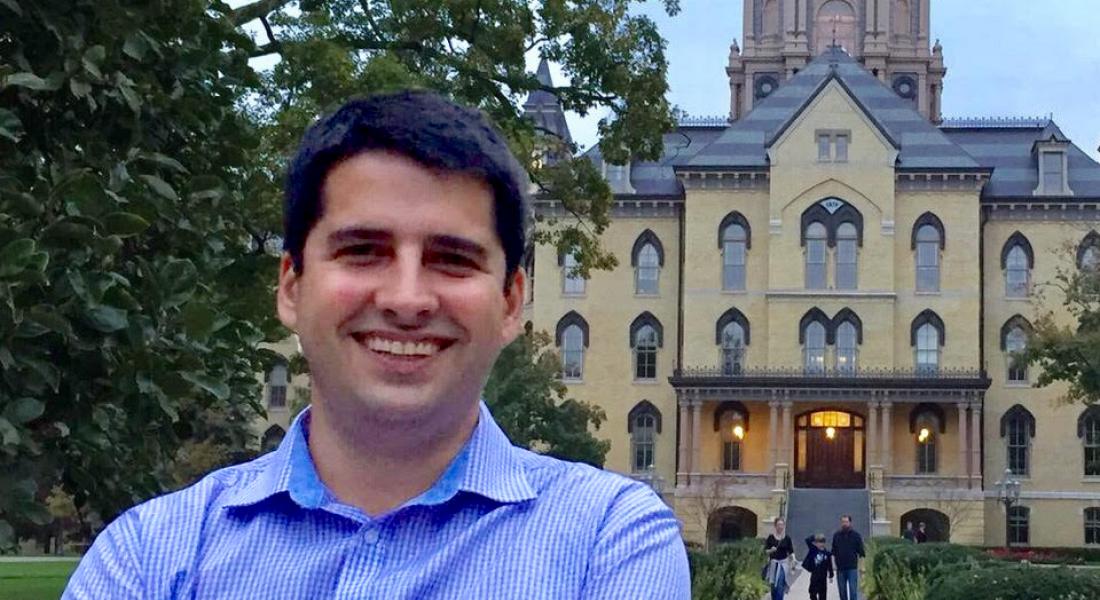
Doctoral Student Affiliate Luis Schenoni will receive the 2020 award from the Latin American Studies Association (LASA) for Best Paper on Political Institutions presented at the 2019 LASA Conference for his paper titled “Bringing War Back In: Victory and State Formation in Nineteenth Century Latin America.”
The paper was nominated by former Kellogg Visiting Fellow Raúl Madrid, who became familiar with Schenoni's work in long discussions with him while at the Kellogg Institute. The Political Institutions Section of LASA presented the award, with award committee members including former Kellogg PhD Fellow and Guest Scholar Andrés Mejía Acosta (Kings College), Jennifer Cyr (University of Arizona), Rodrigo Barrenechea (Harvard University), and Gisela Sin (University of Illinois at Urbana-Champaign).
Archival work for the project funded in part by Kellogg Institute Graduate Research Grants awarded to Schenoni in 2017 and 2018, which allowed him to undertake data collection in Argentina, Brazil, and Chile.
In the paper, Schenoni proposes that scholars of state formation have often dismissed the effect of war on state formation in regions like Latin America where mobilization for war is deemed insufficiently intense and international conflict fails to out-select weaker states. Against this conventional wisdom, he contends wars can affect state-building trajectories in a post-war period through the different state institutions that result from victory and defeat. After reconsidering the role of war outcomes in classical bellicist theory, Schenoni uses difference-in-differences analysis to identify the effect of losing vis-a-vis winning a war on levels of state capacity in a panel of Latin America (1860-1913). He then illustrates his causal mechanisms in case studies of the Paraguayan War (1864-1870) and the War of the Pacific (1879-1883) and applies the synthetic control method to these cases. The paper shows, overall, that while out-selection of losers obscures the effect of war outcomes in European history, Latin America illuminates their long-term consequences.
In its citation of the work, the awarding committee stated, "This is a theoretically ambitious paper, with grand theory implications for building state capacity, wars, and taxation. The paper revisits a discussion about the relevance of war for state-building in Latin America and arrives at novel conclusions that are well supported by the evidence presented. It shows meticulous historical and statistical work and displays a genuine mixed methods approach to its research question, ranging from case studies to synthetic controls. The model is well constructed, hypotheses derived, and thoroughly tested. It offers an excellent comparative framework for analyzing other cases in the region. Overall, this is an exemplary paper that advances a theoretical agenda that is relevant for the entire region, and it does so through an innovative and rigorous methodological approach.”





